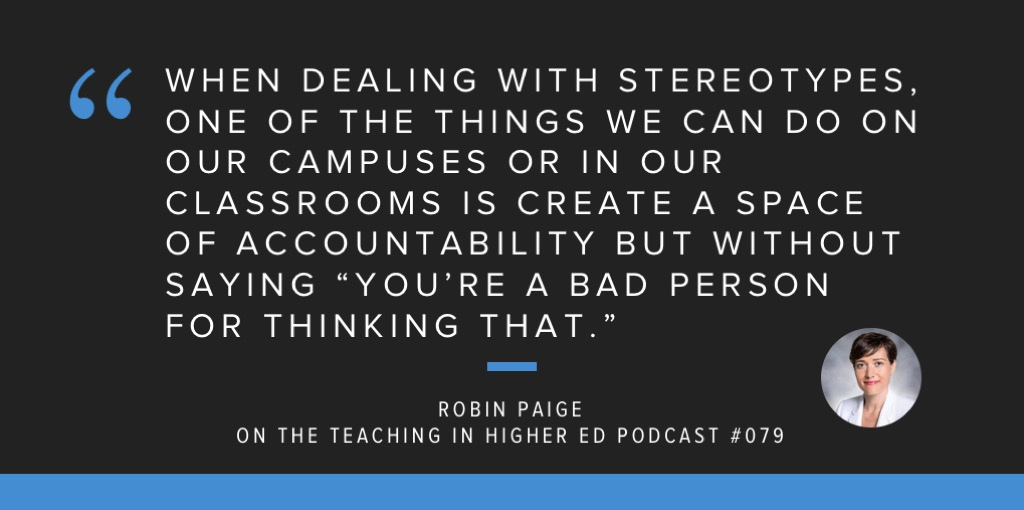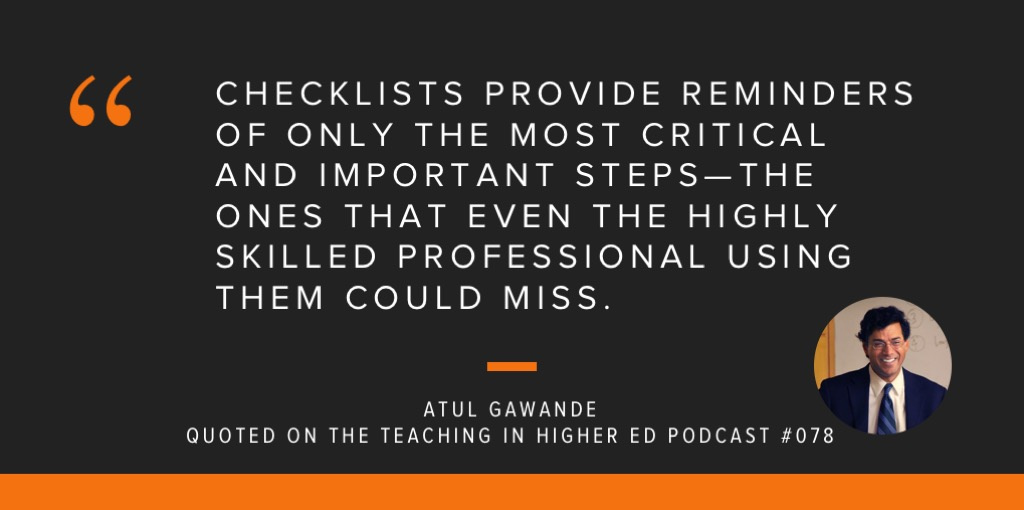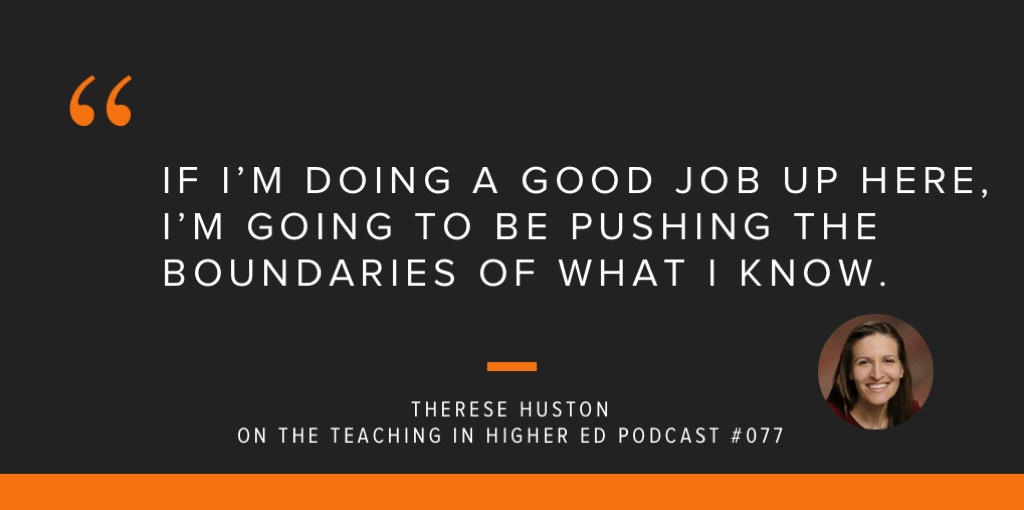On today’s episode, I speak with Dr. Robin Paige about the potential impact of stereotype threat inside and outside of our classrooms.
Quote
When dealing with stereotypes, one of the things we can do on our campuses or in our classrooms is create a space of accountability but without saying “You’re a bad person for thinking that.”
—Robin Paige
Resources
Academic Paper by Claude Steele and Joshua Aronson: Stereotype Threat and the Intellectual Test Performance of African Americans
Recommendations
Bonni:
Podcast: This American Life episode 573: Status Update
Book: Between the World and Me* by Ta-Nehisi Coates
Course: 5 days to your best year ever course with Michael Hyatt*
Robin:
Book: Whistling Vivaldi* by Claude Steele
Blog: http://thesocietypages.org/socimages/
Tip: Use food to create a stereotype-safe environment because it becomes a thing people have in common.




